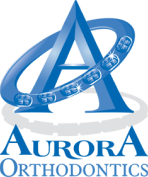Embracing Orthodontic Wellness in the Golden Years: A Comprehensive Guide for Senior Oral Health
As individuals gracefully age, the importance of oral health becomes increasingly significant. This blog post explores the unique oral health challenges that seniors encounter and delves into the realm of orthodontics as a viable option for enhancing dental well-being in the later stages of life. From understanding the impact of aging on dental health to practical tips for maintaining oral hygiene with orthodontic appliances, this guide aims to empower seniors to make informed decisions about their oral care.
Understanding the Unique Oral Health Challenges in Seniors
Seniors face distinctive oral health challenges due to the natural aging process. Factors such as reduced saliva production, changes in gum tissue, and wear and tear on teeth contribute to conditions like dry mouth, gum disease, and tooth decay. These challenges underscore the need for tailored oral care solutions that address the specific concerns of seniors.
How Aging Affects Dental and Orthodontic Health
Aging can impact dental health in various ways:
- Enamel Wear: As individuals age, their tooth enamel naturally becomes thinner due to years of wear and tear from chewing, brushing, and exposure to acidic substances. Thinner enamel is more susceptible to damage and decay, increasing the risk of cavities and tooth sensitivity.
- Changes in Tooth Shape: Over time, teeth may undergo subtle changes in shape and size. This can result from a combination of factors, including enamel erosion, grinding or clenching habits, and natural wear. These changes can affect bite alignment and overall oral function.
- Tooth Misalignment: Aging can also contribute to tooth misalignment, which may manifest as overcrowding, spacing issues, or shifting of teeth. These changes can impact not only the aesthetics of one’s smile but also oral function and hygiene. Misaligned teeth can be more challenging to clean, leading to a higher risk of gum disease and tooth decay.
- Gum Health: Aging can lead to changes in gum health, including a higher susceptibility to gum disease (periodontal disease). Gum recession and loss of attachment to the teeth are common issues in older individuals.
- Tooth Loss: Tooth loss becomes more common with age, often due to factors like gum disease, decay, or trauma. Missing teeth can impact not only the ability to chew and speak but also one’s confidence and self-esteem.
Understanding the nuanced relationship between aging and dental health is crucial for seniors contemplating orthodontic treatments.
The Connection Between Oral Health and Overall Well-being


Maintaining good oral health is not just about preserving a confident smile; it is intricately connected to overall well-being. Poor oral health in seniors has been linked to systemic conditions such as cardiovascular disease, diabetes, and respiratory issues. Addressing oral health concerns through orthodontic treatments can contribute not only to an improved smile but also to better systemic health in the senior years.
Orthodontics for Seniors: It’s Never Too Late
Contrary to common misconceptions, it’s never too late for seniors to consider orthodontic treatment. Modern orthodontic advancements offer a range of options, from traditional braces to more discreet alternatives like Invisalign. Embracing orthodontics in the senior years can lead to transformative outcomes, enhancing both oral function and aesthetic appeal.
Orthodontic Solutions for Age-Related Issues
Seniors may encounter age-related dental issues, such as tooth crowding, shifting, or misalignment. Orthodontic solutions tailored for seniors focus on addressing these specific concerns, promoting proper tooth alignment, and mitigating issues related to bite and jaw function. The goal is to restore harmony to the oral environment and alleviate discomfort associated with age-related dental changes.
Maintaining Oral Hygiene as a Senior with Orthodontic Appliances
Seniors undergoing orthodontic treatment must adopt a meticulous oral hygiene routine to preserve both their natural teeth and orthodontic appliances. Brushing, flossing, and using interdental brushes become essential practices to prevent plaque buildup and maintain gum health. Orthodontists provide guidance on effective oral care strategies tailored to seniors with orthodontic appliances.
Nutrition and Diet: Key Factors for Healthy Teeth and Gums
A well-balanced and nutritious diet plays a crucial role in maintaining healthy teeth and gums throughout a person’s life, especially for seniors. Adequate intake of essential vitamins and minerals not only supports overall well-being but also directly contributes to maintaining optimal oral health. For orthodontic patients, being mindful of their diet becomes even more important to prevent complications like appliance damage and to ensure successful treatment outcomes.
The Role of Regular Dental Check-Ups and Cleanings


Regular dental check-ups and cleanings are paramount for seniors with or without orthodontic appliances. These appointments allow for the early detection of oral health issues, proactive intervention, and professional cleanings that reach areas challenging to clean with orthodontic appliances in place.
Orthodontic Consultation and Senior Dental Care Planning
Embarking on an orthodontic journey in the senior years begins with a comprehensive consultation. Orthodontists evaluate the unique needs and considerations of the individual, developing personalized treatment plans that align with overall dental health goals. This collaborative approach ensures that orthodontic care integrates seamlessly into senior dental care planning.
Overcoming Myths and Misconceptions About Orthodontics for Seniors
Dispelling myths and misconceptions surrounding orthodontics for seniors is essential for informed decision-making:
Myth: Treatment takes too long.
One common misconception is that orthodontic treatment takes an exceptionally long time, discouraging seniors from pursuing it. While the duration of treatment varies depending on individual needs, technological advancements and modern orthodontic techniques have significantly reduced treatment times. Seniors can often achieve the desired results in a shorter period than they might think.
Myth: Treatment is painful.
Another myth is that orthodontic treatment is always painful. While there may be some initial discomfort and soreness, it is generally manageable, and orthodontists provide guidance on how to alleviate it. The discomfort is temporary and should not deter seniors from seeking treatment.
Myth: Treatment in later years is impractical.
Some seniors may believe that orthodontic interventions are impractical or unnecessary in their later years. However, orthodontic care is not limited by age. It can address various age-related oral health issues, such as misalignment, tooth decay, and gum disease. Achieving proper alignment and a healthy bite can greatly improve oral function and overall well-being, making orthodontics a valuable option for seniors.
Finding the Right Orthodontist for Seniors
Selecting the right orthodontist is a critical step in senior dental care. Look for professionals with experience treating seniors and those with a patient-centric approach and a commitment to addressing age-related dental concerns. At Aurora Orthodontics, we ensure a positive experience for older adults needing orthodontic treatments to maintain comfort and overall oral health. Contact us today for a free consultation.

